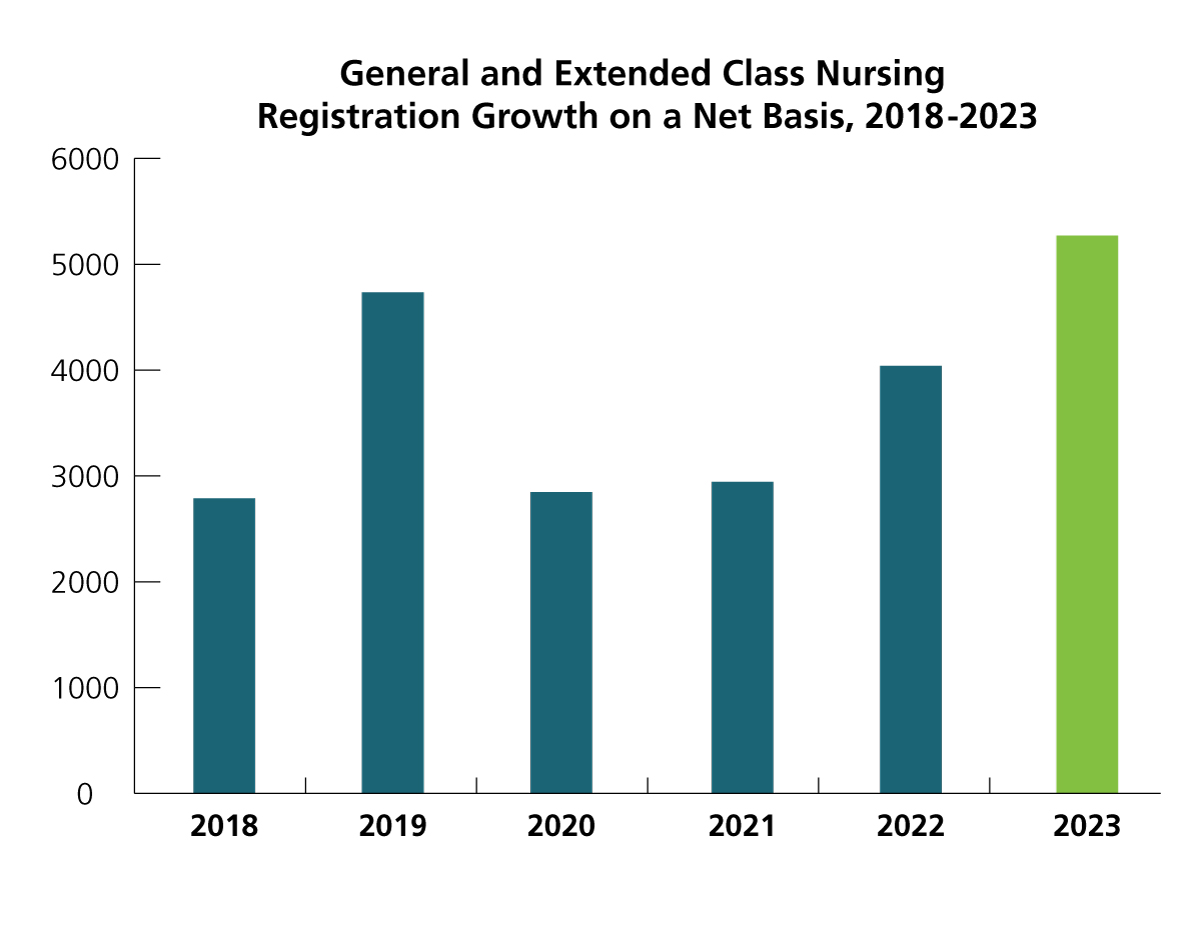A question we at CNO are often asked by nurses, media, policy-makers, the public at large and other stakeholders is: “How many nurses are entering and leaving Ontario’s health care system?”
This is information we track and publish annually in our Registration Renewal Statistics Report. The 2023 edition, released in June, provides answers to this question and others regarding registration of nurses in Ontario.
Last year was a strong year for new registrants. Within the general and extended classes there was a total gain of 12,485 nurses to the registrant pool. That’s a new record. We don’t count only who is coming into the profession, we also account for those who left.

Each year our data shows that some nurses leave the system, whether due to retirement, pursuing another career, or other reasons. By tracking both gains and losses, we can confidently report on the net gains to the system — the number of new registrants decreased by the number of nurses who left the system. With that measurement, there was a net gain of 5,270 nurses — and that’s the biggest gain since 2016. This is also the third consecutive annual increase. In 2020, we saw 2,847 net nurses added to the system. In 2021, we saw 2,945 and in 2022 saw 4,041.
Interested in seeing more CNO data? Visit the Nursing Data Dashboard.